BODY HYGIENE PRODUCTS
- Home
- Our products
- Body hygiene
MANUFACTURER OF HAND, BODY AND HAIR HYGIENE PRODUCTS
We saponify our oils ourselves to manufacture our soaps, meaning we can control all materials in our soaps and guarantee our products are made in Dijon from the raw material to the finished product.
As experts in the formulation of soaps and cleansing gels, we offer products with or without soap, to suit the specific requirements of professionals.
You can choose from our comprehensive range of liquid and solid soaps, to meet your hygiene needs, with or without certification.
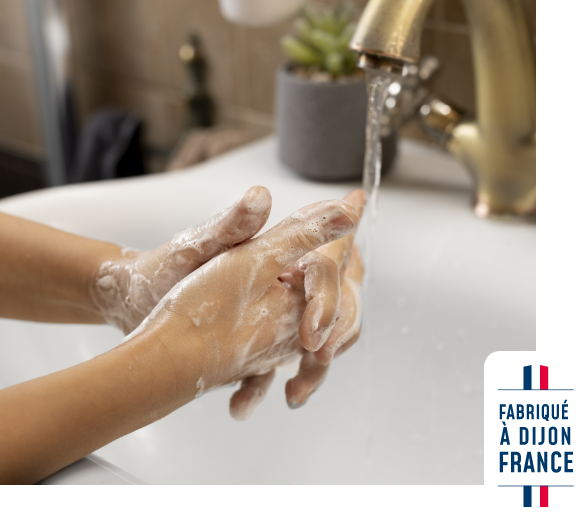
WE ARE THERE TO ADVISE YOU AND TO PROVIDE CUSTOMISED SOLUTIONS, UNDER OUR OWN BRANDS OR AS A SUBCONTRACTOR.
MANUFACTURER OF HAND, BODY AND HAIR HYGIENE PRODUCTS
We saponify our oils ourselves to manufacture our soaps, meaning we can control all materials in our soaps and guarantee our products are made in Dijon from the raw material to the finished product.
As experts in the formulation of soaps and cleansing gels, we offer products with or without soap, to suit the specific requirements of professionals.
You can choose from our comprehensive range of liquid and solid soaps, to meet your hygiene needs, with or without certification.
WE ARE THERE TO ADVISE YOU AND TO PROVIDE CUSTOMISED SOLUTIONS, UNDER OUR OWN BRANDS OR AS A SUBCONTRACTOR.

Saponification is the process through which fatty substances are transformed into soap. It is a chemical reaction between a fatty substance (oil or butter) and an alkali (soda or potash), resulting in a mixture of glycerine and saponified oils.
At Hygiene & Nature, we use potash detergent to manufacture soft and liquid soaps. Soda is used to manufacture solid soaps such as at our sister company, La Savonnerie du Midi, which has manufactured genuine Marseilles soap for 130 years.
We use a hot saponification process, where the material can be equally used for cosmetic soaps and detergent soaps (such as black soap for instance)
The oils we saponify are:
- Copra oil (derived from coconut oil but free from palm oil): strong foaming properties and strong cleaning/detergent properties.
- Olive pomace oil (product derived from the extraction of pure olive oil, containing the pulp and fragments of kernels): produces a mild, gentle soap.
- Linseed oil and olive oil: produce a mild soap.
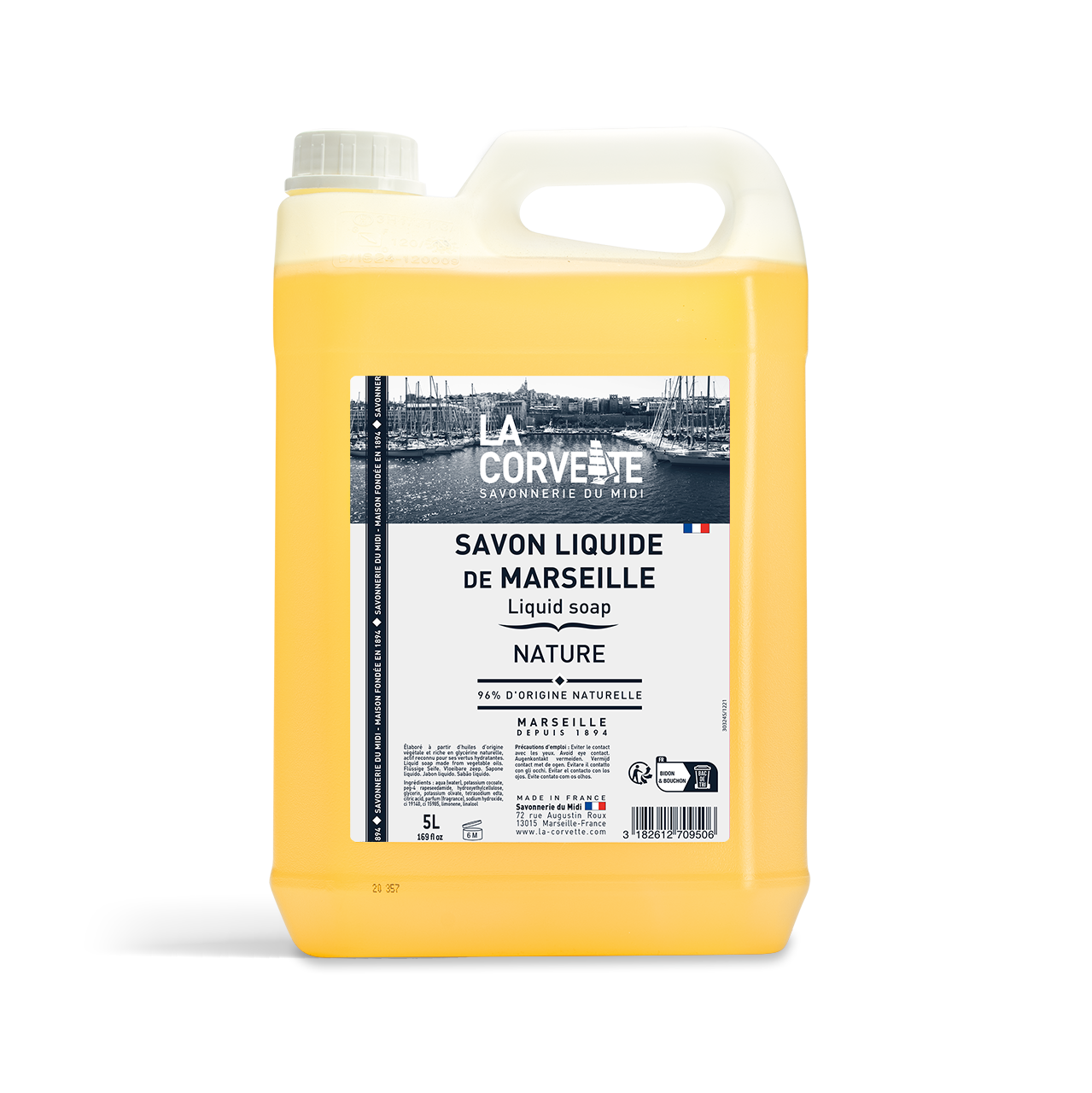
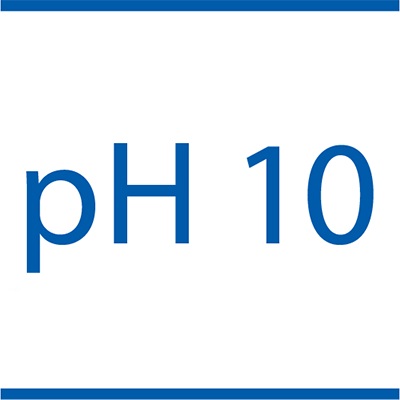
FRAGRANCED LIQUID MARSEILLE SOAP
For hands
Packaging : Carton 4 x 5 L
See the product
Certified product
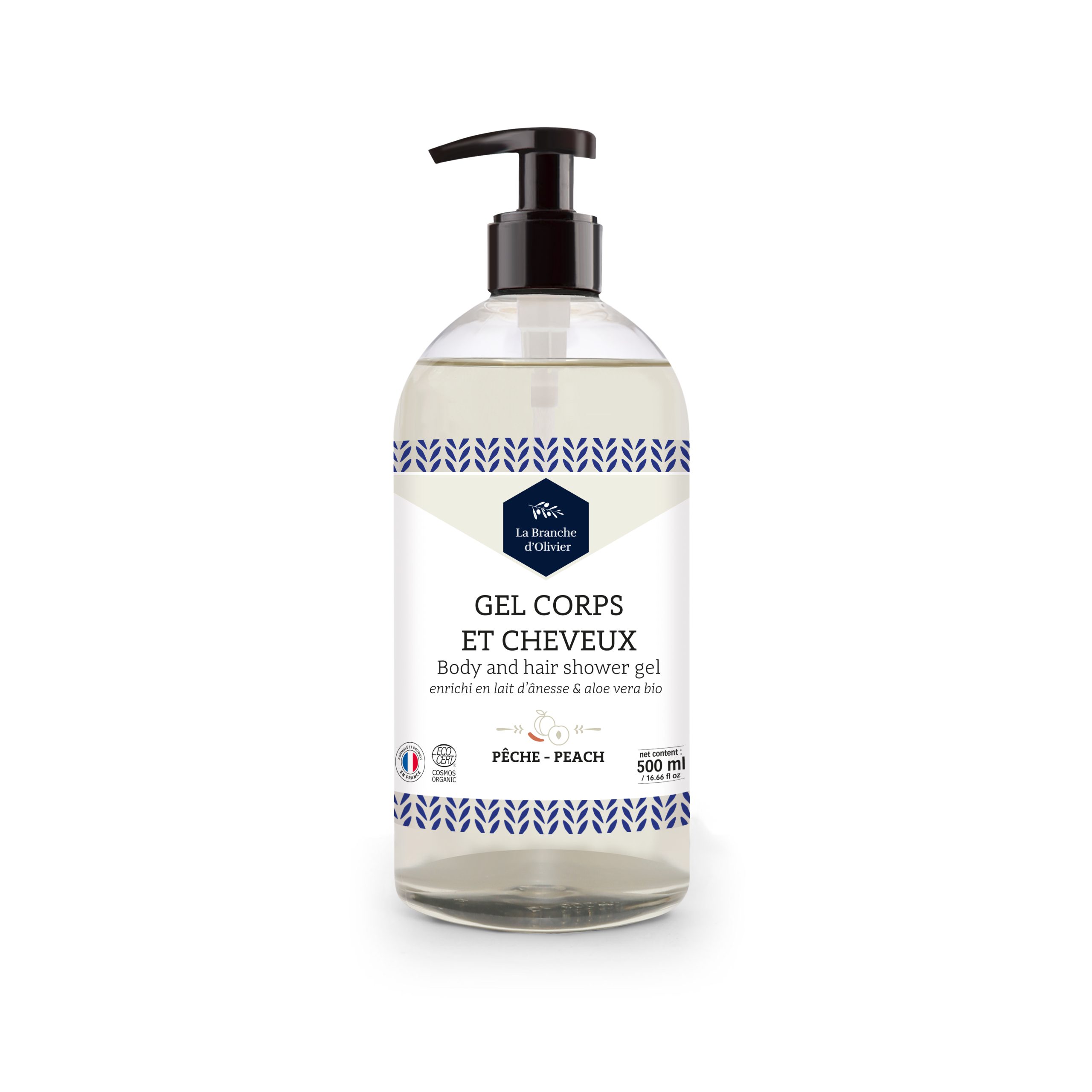
PEACH HAIR & BODY SHOWER GEL 500 mL
Hair and body shower gel made with Organic ingredients
Packaging : Carton 6 x 500 mL
See the product
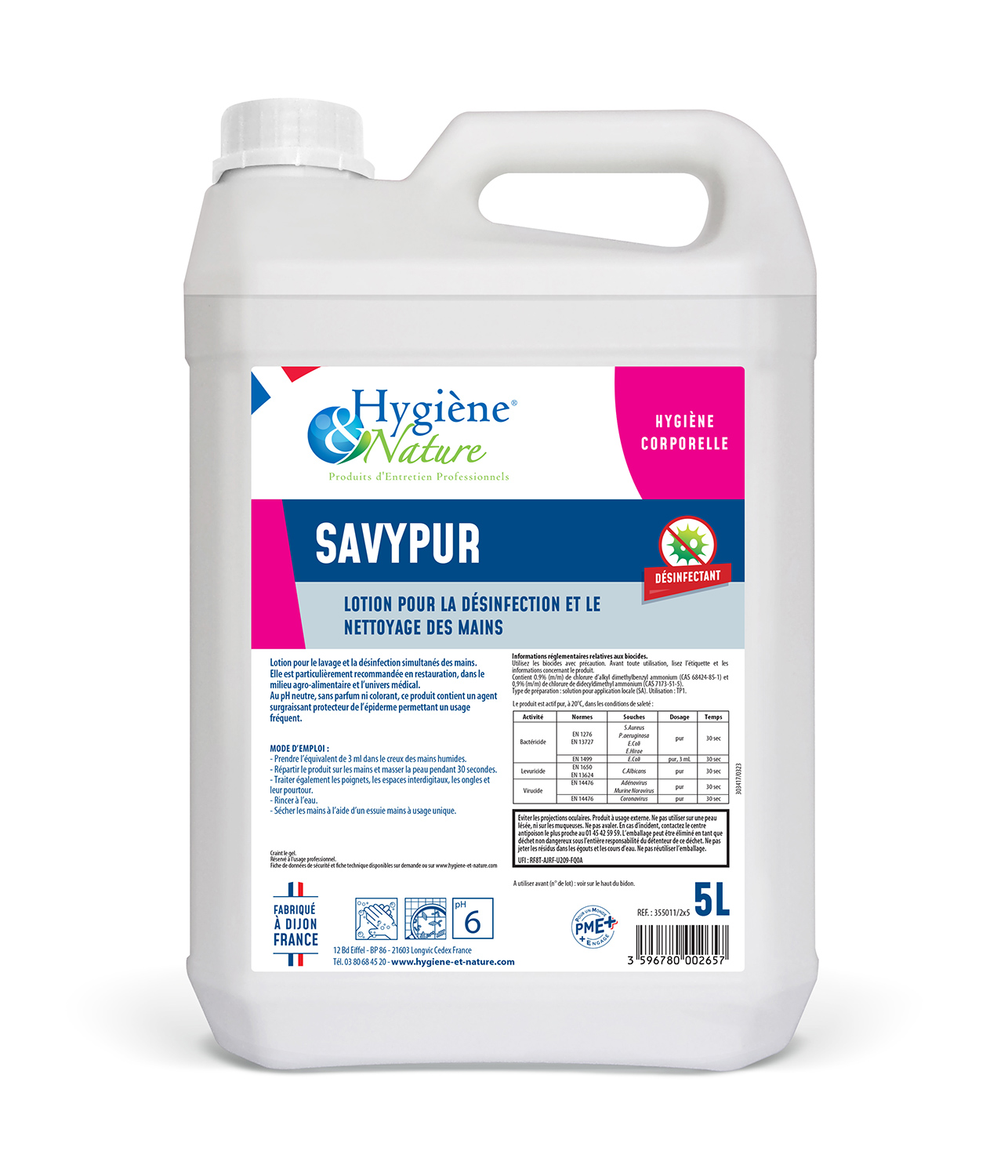
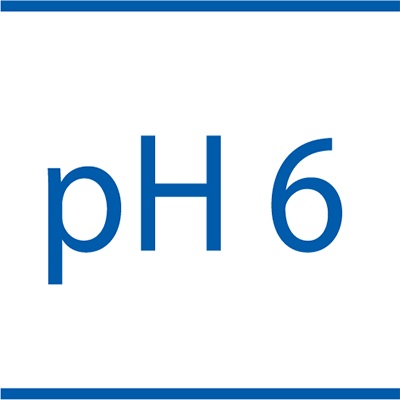
SAVYPUR
Hand lotion for simultaneous washing and disinfection
Packaging : Carton 2 x 5 L
See the product
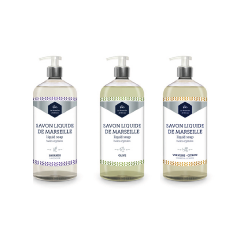
LIQUID MARSEILLES SOAP
For hands
Packaging : Carton 12 x 1 L
See the product
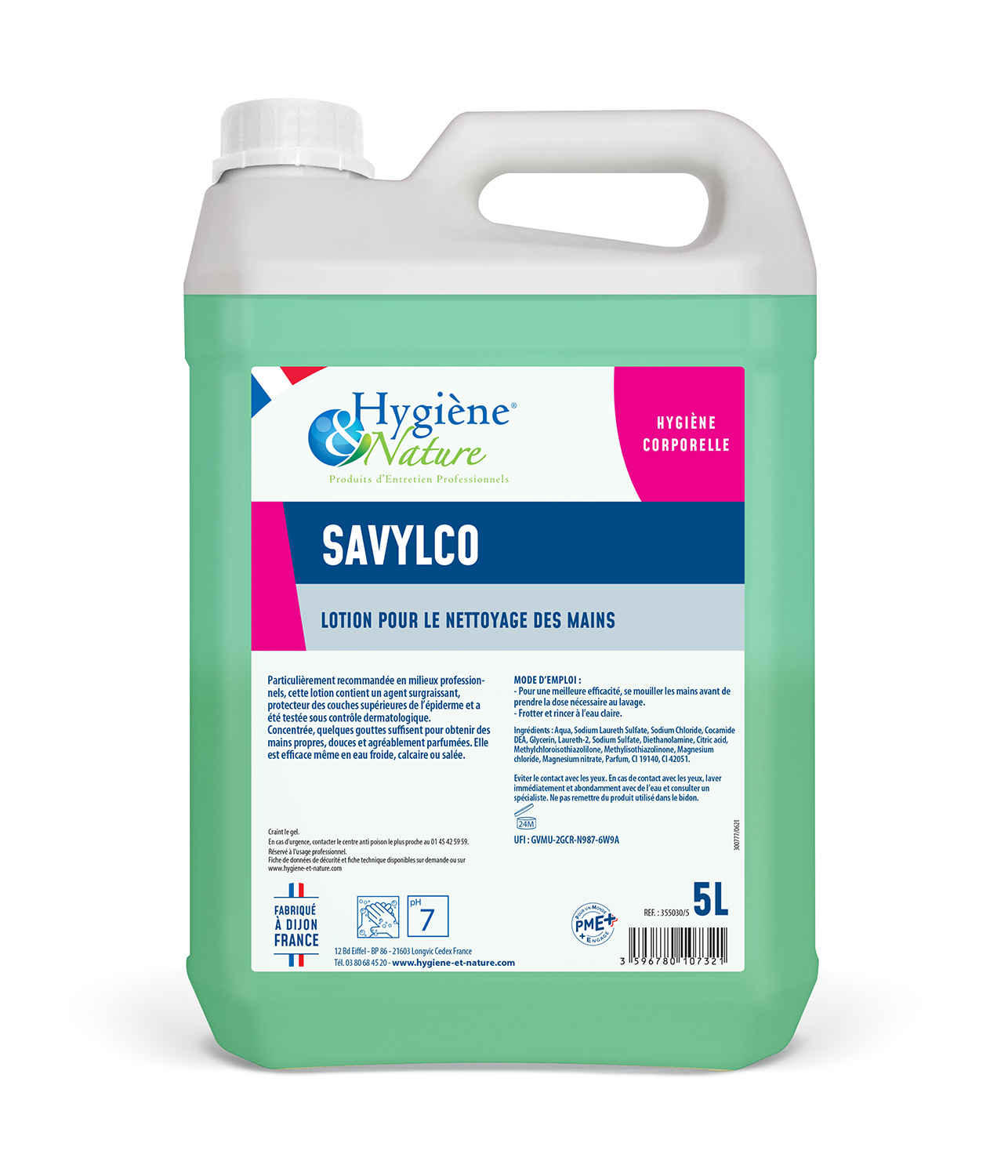
SAVYLCO
Almond cleansing cream
Packaging : Carton 4 x 5 L
See the product
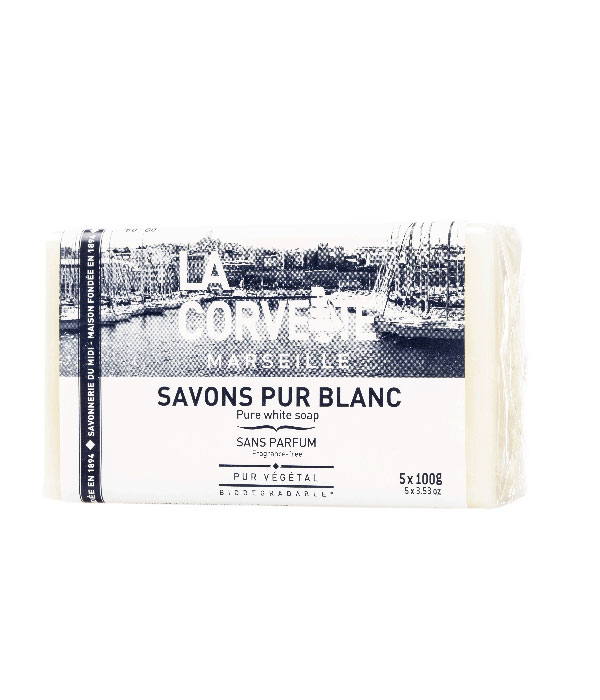
PURE WHITE SOAP
Glycerine soap
Packaging : Carton 12 x 1 U - Carton 4 x 5 U
See the product
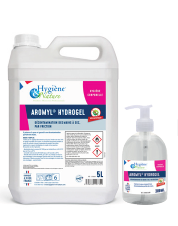

AROMYL HYDROGEL
Hydroalcoholic gel for hand disinfecting
Packaging : Carton 4 x 5 L
See the product
HAND WASHING METHOD
Hand washing is an essential daily hygiene habit, since hands are constantly in contact with outside elements, which are full of micro-organisms and dirt of all kinds, which they contribute in spreading.
Washing hands carefully and frequently reduces risks of transmission and contamination. A few precautions are all it takes to improve hygiene and prevent diseases, just by following a few simple recommendations.
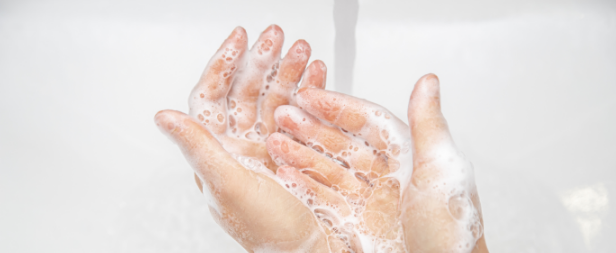
WHEN SHOULD YOU WASH YOUR HANDS?
- As soon as you get home.
- Before and after taking care of a newborn or baby (especially after changing a baby).
- After going to the toilet.
- Before preparing food.
- Frequently during cooking, especially before handling food that will be eaten raw or after handling dirty food (vegetables with earth)
- After blowing your nose, sneezing, coughing or handling contaminating objects (door handles, dustbin, waste, telephone, etc.).
- Before eating.
- After messy activities (cleaning, moving, DIY, gardening).
- After playing with or touching animals.
- After handling or putting out the rubbish.
HAND WASHING METHOD
Hand washing is an essential daily hygiene habit, since hands are constantly in contact with outside elements, which are full of micro-organisms and dirt of all kinds, which they contribute in spreading.
Washing hands carefully and frequently reduces risks of transmission and contamination. A few precautions are all it takes to improve hygiene and prevent diseases, just by following a few simple recommendations.

WHEN SHOULD YOU WASH YOUR HANDS?
- As soon as you get home.
- Before and after taking care of a newborn or baby (especially after changing a baby).
- After going to the toilet.
- Before preparing food.
- Frequently during cooking, especially before handling food that will be eaten raw or after handling dirty food (vegetables with earth)
- After blowing your nose, sneezing, coughing or handling contaminating objects (door handles, dustbin, waste, telephone, etc.).
- Before eating.
- After messy activities (cleaning, moving, DIY, gardening).
- After playing with or touching animals.
- After handling or putting out the rubbish.
HOW TO WASH YOUR HANDS CORRECTLY?
Preferably use a mild soap suitable for frequent use. Use drinkable water.
- Wet your hands.
- Put a dose of SAVYLCO cleansing cream in the palm of your hands (use SAVYCAL S4 hand disinfectant beforehand in agri-food and medical environments).
- Lather and rub your hands together, especially between your fingers, the edge of your hands, the palms, the back and fingernails, without forgetting your wrists, for at least 20 seconds. If fingernails are long and dirty, wash your hands twice. During the first wash, use a soft, clean brush with soap to thoroughly brush your fingernails until all dirt is removed. Wash hands a second time without using the brush.
- Rinse thoroughly.
- Dry hands with a clean fabric hand towel or a single-use paper towel. You can use a dish towel provided it is only used to dry hands. Change it as often as required and at least every 2 days.
When you are travelling or don’t have access to water, you can use AROMYL HYDROGEL, a hydroalcoholic gel, more effective on hands which have been washed beforehand.
- Take a dose and spread the product on your hands; rub them gently for at least 30 seconds until product has evaporated. Also rub between your fingers and under and around your fingernails.
- Repeat once.